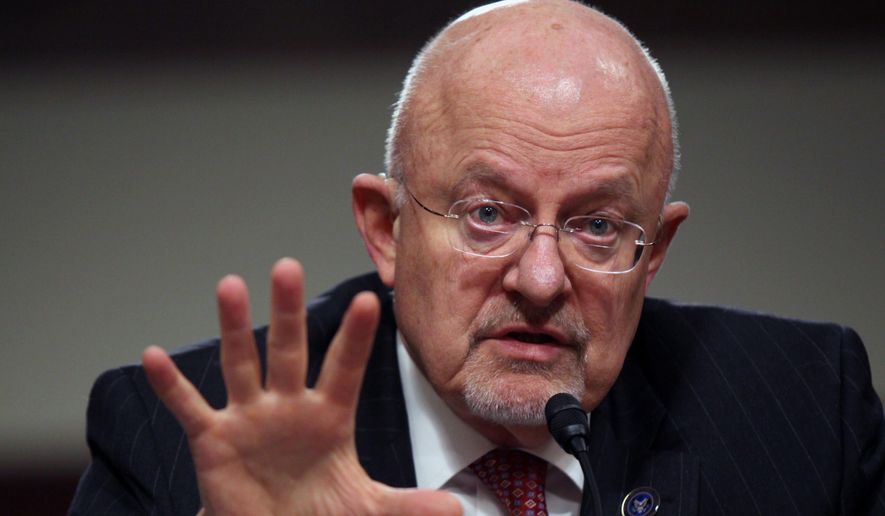Director of National Intelligence James R. Clapper described on Sunday his recent secret mission to North Korea to bring home Americans Kenneth Bae and Matthew Miller.
Mr. Clapper said on “Face the Nation” on CBS that he was “quite apprehensive” during his trip to Pyongyang to secure the prisoners’ release, The Hill reported.
“I personally was not completely confident that we would actually … that they would actually release our two citizens, and so yes, it was apprehensive,” he said. “And, from a personal standpoint, it’s kind of always been on my professional bucket list, you know, to visit North Korea, so I did get to do that.”
Mr. Clapper said it was the first time he had been to North Korea “with permission” from the government. He had previously traveled into North Korean airspace aboard a U.S. helicopter in December 1985.
“They shot at us, and fortunately we made it back to the South,” he said of that previous trip.
Mr. Clapper said North Korean officials were disappointed that there was no diplomatic “breakthrough” in relations as a result of releasing the two Americans.
He described an unpleasant dinner he had during the trip with the head of the Reconnaissance Guidance Bureau, who reinforced his belief that North Korea “feels itself to be under siege,” The Hill reported.
“There is a certain institutional paranoia, and that was certainly reflected in a lot of things that he said,” Mr. Clapper said. “For example, allegations about our exercises that we conduct in the Republic of Korea. They did bring up the human rights issue at one point, although we were well into the dialogue. Criticizing us for our interventionist approach, our interventionist policies into their internal matters. So it was that sort of dialogue back and forth. It wasn’t exactly a pleasant dinner.”
• Jessica Chasmar can be reached at jchasmar@washingtontimes.com.




Please read our comment policy before commenting.